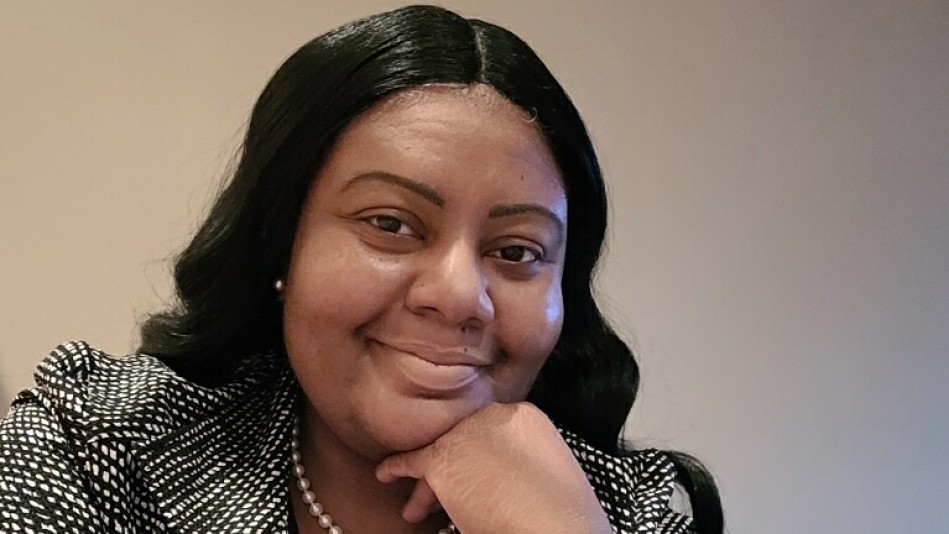
Vontina Renee McGrant: What to Consider When You Want to Support Your Community
Vontina Renee McGrant, the owner and lead administrator for Knee-High Children's Learning Center in Charlotte, NC, explains why community building and youth advocacy work is her life's calling.
As an adult, I wanted to find a way to honor my mom's life and memory without sadness, so I started working with organizations that did that kind of work. I joined the Board for Carolina Care Partners (C.A.R.E.), where I worked with many clients and Board members who had a background in trauma-informed care, linkage to care and helping people with HIV/AIDS live with dignity. The experience taught me that I didn't know much more about the disease than the average person. Hearing other people's stories helped me realize that HIV/AIDS is no longer a death sentence, as it was during my mom's time, but a chronic disease that requires daily treatment—one that can be approached much in the same way as diabetes.
My first foray into community outreach work began during my senior year at UNCC. I was interning with United Family Services in the Community and Neighborhood Development Division. Our satellite site was between Brookhill and South Side Homes. (South Side Homes is where I was raised, and I actually lived in Brookhill as well.) After completing my internship, they offered me a position as a site coordinator for an out-of-school program at Marie G. Davis School, and I worked there for two years until the grant ran out. I also worked in Community and Housing Development with the residents of both Brookhill and South Side Homes, an area that had been identified as a food desert due to a lack of fresh fruits and vegetables. In that role, I connected the community to food banks and helped area parents with housing issues.
For the past 16 years, I've been working with people in West Charlotte. My center, Knee-High Children's Learning, is located in the West End, in the Beatties Ford Road area between Johnson C. Smith University and Lasalle Street. I'm about 2.5 miles away from the Center of Hope Salvation Army Shelter, so a lot of my clients come from there. Mainly, though, residents of West Boulevard and Beatties Ford Road are the people that I serve.
A lot of the inspiration for doing this work comes from the people that helped me during my childhood—especially my former teachers. I can remember coming up, having to use a lot of the services that I'm now pointing other people toward. My organization, 3rive Foundation, provides support to all young people encountering times of despair, no matter their situation. My mom having HIV was my story—but there are countless other conditions that prevent kids from being able to be kids.
What I do is not just child-care—it's a whole family-centered approach. I've had a mother in need run to my center, having just fled a domestic altercation. She came in bloodied and crying, asking me to call the police. We had to lock the door. This was all before I even began my day. I'm the first one to get there, and some days the last to leave. Sometimes, situations like that just happen, and we address them as they arise. Over the past 16 years, I've lost some parents and a couple of grandparents; sometimes, their families don't have money for funeral costs. I try to support those families, even after they are no longer with us, because they become a part of my family. Whether it's helping raise money for funerals or sponsoring a child who no longer has a parent at Christmastime, these are just a few of the things I've done throughout the years without necessarily viewing it as outreach. It's work I believe I should do.
I've gone to a couple of funerals, a couple of vigils. But I've also seen some amazing triumphs. I've had parents start with me when they were in the shelter, and I've watched them get their first apartment, their first car or living room suite. These are things we might take for granted, but we celebrate that for them. Some moments are good; some are not so good. But we do it together. And if I don't have the answer—Lord knows I don't have them all—we find somebody who does.
Some of my clients are teenagers who came to me when they were just 15 years old. It's rewarding to see them happy about their accomplishments, independence and self-sufficiency—especially when you see them come from really low places, not necessarily having the family support they may need to get through. I had a teenager come to me who was here on her own from New York, with no family in this area. Sometimes, we're that village. They don't have another person to call. That's something I've learned while helping people fill out paperwork and realizing they don't have anyone to put down for an emergency contact. Those stories always strike a chord within me, because I'm from here. All of my family is here. I can't imagine what it's like as an adult being in a place where you don't have any support, let alone a teenager.
After seeing those situations on a regular basis, it's rewarding to watch the students come out of it on the other side, ready to move into the next phase of their lives and put their earlier struggles behind them. That's what motivates me to continue to do this work.
If you feel the pull to work with a community in need, the first step is to figure out what the need is. I've found that, sometimes, people come in and start offering suggestions without first assessing the need. My advice to you? Connect with an organization that's already doing the work you want to do. I joined NCBW-QCMC because I felt that I could do more with a group of women that were already doing the work. I just try to do my little bit and get out of the way.
Vontina Renee McGrant is based in Charlotte, NC, where she currently serves as the owner and lead administrator for Knee-High Children's Learning Center, a child-care center licensed for children six weeks to 12 years old. Vontina has served in that role for 16 years.











